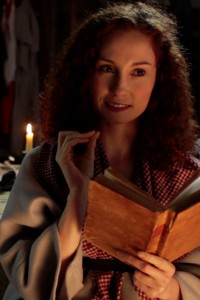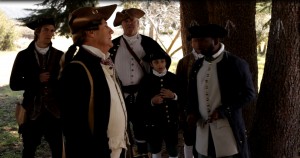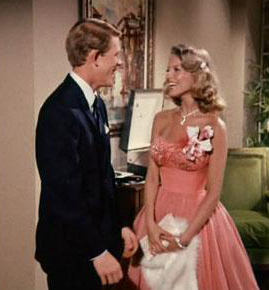The Story You Crave
What makes a story worth your time?
I’m a little embarrassed to admit it, but I can remember looking forward to “Happy Days” installments when the show first began running in 1974. That would have been around 8th grade for me, and it might have had something to do with thinking high school would hold moments of gorgeous mystery — a girl who looked like Linda Evans saying yes to the prom, the Beach Boys showing up for your birthday party, dad presenting you with a chrome-heavy convertible red Corvette.
My own high school era, the late 1970s, just seemed shaggy and disco and bleh. I guess “Happy Days” felt like a more distinctly American mythology. Classy. Romantic. Bigger than life.
I can’t say I was that much into the story. Do I remember a single show premise? No. Trying hard here. No, I don’t. I remember Fonzie’s bra-plucking skills. I remember the pretty girls and Richie’s comic, lovelorn adoration.
In college, I can remember feeling absolute revulsion at the notion of following Luke and Laura’s romance on General Hospital. A girl in our college row house started turning it on, around lunch, and I suppose I began watching it because it was either watch the show or have no idea what people were talking about. I became mildly addicted.
Most of college, however, was spent without television. For me, those were the short story years: Flannery O’Connor, Raymond Carver, John Cheever, Tobias Wolfe. It was both more minimalist and more challenging stuff. Plot was much less important than experiencing something in the narrative that disturbed or spooked you. It didn’t matter where you were going as long as the journey had some element of the bizarre in it, something never tried before. Those were the years, for me, when you were sheepish about happy endings and any hint of sentimentality. I know, because I was trying to publish my version of those things, and, really I still have a fondness for them, but let’s face it: No one makes a living selling short stories to the Atlantic, unless the good citizens of Iowa or Oregon are making up the difference between market value and the cost of your assistant professorship. (The difference is pretty substantial. The American short story is pretty much state-sponsored theater.)
 Sooner or later, if you really mean to tell stories that people talk about, you have to measure what people will sit through, what attracts them, what holds them, what touches them.
Sooner or later, if you really mean to tell stories that people talk about, you have to measure what people will sit through, what attracts them, what holds them, what touches them.
The first reality is that no one really knows. It’s a mystery. If it were a formula there would be an app for it. I have a friend who is very highly placed in television story development at one of the big studios, and when I get to pick his brain, it sounds like he’s got it all charted out. (He likes strong protagonist, world on the verge of collapse, name actors, and he even has a list of forbidden occupations and forbidden settings). But he’s spending $1 million or more per episode. He has to know how to reduce risk, and that might help, but it doesn’t really explain why some television characters grab you by your collar, and leave you talking about their lives for the rest of the week.
In the Courage world, we are beginning to hear from people who confess to what we were seeking in the first place — an “episodic addiction.” People are keenly interested in knowing, for example, what happens to Rev. Laud. After the first episode, some folks wanted to hear more from Bob and Sarah. They didn’t want them off in the wilderness, out of the story, or if they were gone, they wanted the camera to follow them. People are trying to figure out who Abraham Foxe is, and they wonder what his story might be.
Unfortunately, there are a few who could not care less. History leaves them cold. Baroque language and 18th century cultural issues bore them. They don’t have much patience for any conversation, unless, maybe it takes place over a sword fight or a cavalry charge. If it were a choice between Courage and that night’s NBA game, we would lose — in a fast click.
 Of course, it’s not just a category fight between sports and drama. We have, by my way of thinking, a really captivating trailer for episode three, but one DVD distributor claimed he watched it twice and couldn’t understand what it was about, except that “some trees needed to be cleared.” I was tempted to write back, “maybe you shouldn’t try streaming four trailers at once; some things can’t be multi-tasked.”
Of course, it’s not just a category fight between sports and drama. We have, by my way of thinking, a really captivating trailer for episode three, but one DVD distributor claimed he watched it twice and couldn’t understand what it was about, except that “some trees needed to be cleared.” I was tempted to write back, “maybe you shouldn’t try streaming four trailers at once; some things can’t be multi-tasked.”
One one level, the answer is simple. God’s creation is so infinitely complex, His children are made of such radically different stuff, that not every story will hit your glitter-glow button the way “Happy Days” did for me in 9th grade. Jack Bauer worked, for me, when he was fighting the Saracen Jihad mob, but sort of sagged when the enemy wasn’t credible. I find the prospect of a high school chemistry teacher embroiled in the Mexican drug cartels (“Breaking Bad”) fascinating but I have friends who really don’t believe the protagonist.
Our subjective tastes are just that.
With respect to Courage, what I find most challenging is that conflict between the need to make things happen, to show a man running through the woods for his very life and those other moments where we slow down and show you what that life really is.
You need both. You need to know what you want to say, and you can’t be too upset if someone wants to watch “24” instead.
To each his own.

